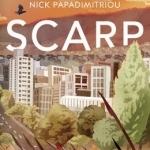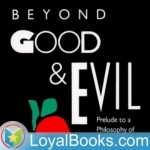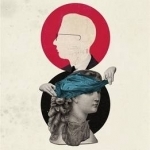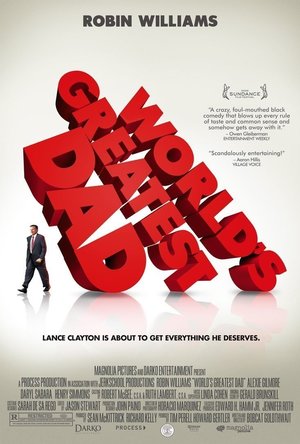
Scarp
Book
es it's difficult to define exactly what this book is: it mixes autobiography, local history,...

Beyond Good and Evil by Friedrich Nietzsche
Podcast
Beyond Good and Evil, by Friedrich Nietzsche A searing indictment of concepts like “truth” and...

Love's Executioner
Book
Love's Executioner offers us the humane and extraordinary insight of renowned psychiatrist Irvin D....

Prompts - Beat Writers Block
Productivity and Education
App
Writing with Prompts is like writing with an inspirational coach sitting beside you. The app learns...

Hip Hop and Rap Ringtones – Best Beats and Melodies of Your Favorite Music Genre
Music and Entertainment
App
Is hip hop your favorite music genre? If the answer is yes, you are in the right place! Download...
Louise (64 KP) rated The Moonlight Dreamers in Books
Jul 2, 2018
I really enjoyed this book all about friendship.It was a cute, fun and heart warming read and I enjoyed the twists and turns along the way.
Amber is sick and tired of being treated differently at school, she is not one to conform. All the girls at school are obsessed with beauty, fashion and boys! All she wants is to have a proper conversation with someone her own age about her interests and not to be judged on her views. Inspired by her favourite author Oscar Wilde she plans to start a group called the Moonlight Dreamers, where she can find like-minded people, others who have dreams,others that are different and can talk about anything in the group without being taunted. Four girls join the group but they couldn’t be more different.
Amber,Sky, Maali and Rose couldn’t be more different. Amber is being bullied at school, the main reason being that she has two dads, also she is not getting on with one of them and is leaving her quite stressed. She tries to de-stress with writing on her blog and starting the Moonlight Dreamers. Sky is still grieving for her mother, trying to become a poet and perform in front of others whilst her dad is canoodling with a celebrity. Maali is trying to get the courage to speak to boys so one day she will find her soul mate and Rose is sick and tired of being told what to do by her mother and feeling pressurised by her boyfriend. These girls were so different from one another,we had different religions, race and backgrounds. There was also so much creativity from poetry, writing, art and baking.The diversity in this book was amazing. As soon as I had read that Amber had two dads I knew that I was going to enjoy this book, I have never read anything where there have been same-sex parents and loved that Siobhan Curham added it into the book. There were parts in the book where I was so worried for some of the characters that I was reading as fast as possible to make sure they were alright.
" Yes: I am a dreamer. For a dreamer is one who can only find his way by moonlight, and his punishment is that he sees the dawn before the rest of the world.”
The book is mostly about developing friendships, families and identity. I liked that this book had no romance in it and it wasn’t needed as there was so much going in on with the girls lives that you were focused on their individual issues. The book was fast paced with a short paragraph or two from each of their point of views. There were also different formats used such as texts, emails and notes from blogs which made the book read quicker.
This book was so honest and relatable,the problems that Teenagers go through at school such as not fitting in, bullying,boyfriends,sex etc etcera. Parents are being……well… Parents!,you know what it’s like when your young, your parents are insufferable, embarrassing and doing everything in their power to make your life hell. I think this book will be great for teenagers and very influential, I personally would have loved a secret society when I was at school.
The ending was really heart warming and wrapped up nicely. My favourite characters from the book are Rose and Maali, I would say this book is for younger YA readers from 13+
I rated this 4.25 out of 5 stars
Chris Sawin (602 KP) rated World's Greatest Dad (2009) in Movies
Jun 22, 2019
World's Greatest Dad hooked me the first time I read about it debuting at Sundance. I heard, "dark comedy," and, "Robin Williams," and was instantly interested. Then the trailer and plot summary really reeled me in. The result is a film that not only surpassed expectations, but also went in an unexpected direction. When a film is described as a dark comedy, it has usually still stuck to specific guidelines. Maybe it still followed a similar formula to what other comedies did before it. These other films that are labeled as dark comedies don't really break any new ground. World's Greatest Dad goes beyond that. It breaks any ground rules that were laid before it and doesn't follow any sort of formula. When they say, "dark," they aren't kidding. The subject content is pretty disturbing yet is somehow still humorous.
Robin Williams plays the role of a dad who's trying to do his best with the obstacles life has thrown at him incredibly well. With everything that's going on in his life, even in the moments of the film where he doesn't speak, it looks like he's constantly thinking about something. Always dwelling on what's going on around him with the people who are close to him in his life and trying to decide how he's going to handle this situation he's gotten himself into. While his role does show a bit of his comedic side, Robin Williams proves he can handle serious roles rather well with this performance.
While I obviously can't say much about what direction the film goes in without completely spoiling the film, I will say that the trailer does a good job of not giving any of that away. Once the film makes that turn though, it really follows through with it and doesn't let up. One of the best parts of the experience of watching this film for the first time is seeing how far the concept of the film is going to go. As Lance buries himself in this, people begin to say the actions that were taken changed their life for the better. If you told a lie that did that to not just one person, but practically an entire high school...how would you tell them the truth?
World's Greatest Dad is not going to be for everyone. Some people will love it and others will just downright hate it. The film isn't just dark, it's DARK. That and it's a very different kind of comedy with an unexpected turn of events. Most of the humor is very dry, so if that's not your thing then I wouldn't recommend it. For me personally though, it's one of the most interesting films I've seen in quite some time.

Christ In Song
Music and Book
App
We are pleased to present the Christ in Song hymn treasury. These hymns are hand-picked for their...

Dwarf Fotress
Video Game Watch
Dwarf Fortress is a single-player fantasy game. You can control a dwarven outpost or an adventurer...
Haley Mathiot (9 KP) rated Sanctuary in Books
Apr 27, 2018
My Summary: Lea is a refugee who has survived for the past few months living in the wild and traveling from house to random house, just trying to stay alive. When she is found, ill, by American soldiers and taken care of and healed, she has a choice—leave the soldiers and spend the winter by herself, homeless, with no protection in the middle of a war, or trade sex for protection and safety from Major Russell. She chooses the exchange. But Lea and Russell both are not prepared for the outcome of the bargain—Love. Lea and Russell are married, and try to build a real relationship from their original bargain. Can they make it work…
Thoughts: I really hate it when a book has what I call “happy-land syndrome—” where everything works out nicely, relationships are smooth and when they’re rough their fixed quickly and painlessly, and everyone lives happily ever after. This book does have a happily ever after of some sort, but it most certainly does not have happy-land syndrome. This book was a picture of a real marriage—the ups, the downs, the arguments, the forgiveness. There were clear differences between passion, lust, and love (which is always refreshing), and there were arguments the way real arguments happen. There was pride, there was sympathy, and there was forgiveness.
There was a lot of humor in this book! Now mind you it was not a “funny” book, but there were some very good funny pieces of dialogue.
Plot: This book didn’t have a complicated plot, or any huge unexpected occurrences. It was a “simple” story line—but it was a very addicting read. That’s not to say that everything that happened was dull or boring or expected, it just means it was definitely not a sitting-on-the-edge-of-your-seat kind of romance. It was more like a cuddle-up-with-a-cup-of-tea-and-a-blanket kind of romance. It flowed smoothly, and the pacing was very good—not to fast, not too slow. The only thing about the pacing was that the part where they realized that they’d fallen in love didn’t feel like any kind of climax. Which could have been the point, as it did sort of happen slowly.
Characters: I liked the fact that the characters in this book were like real people—they had their strengths and weaknesses, their qualities and their flaws. Lea was stubborn and rebellious, and not at all submissive to her husband, yet she was a sweet and kind girl, and was willing to make sacrifices for Russell. Russell was a very kind man to Lea, and his protective attitude was appealing, however his language and his anger were his downfalls.
Writing: The writing in this book was good. It wasn’t fantastically breathtaking (J.K. Rowling, Robert Frost, Paolini, Dostoyevsky etc.), it wasn’t mediocre (Stephenie Meyer, Becca Fitzpatrick) and it wasn’t atrocious (Meg Cabot.). I can’t really place it in any of those categories. It sort of fell between the first two. It was very readable, it wasn’t dull and empty of good words with barely acceptable sentence structure, but it wasn’t something that sounded like poetry read aloud either. Again, very readable.
Content: There was a lot of sex in this book. I mean, it’s a romance about a girl who trades her body in exchange for being kept alive by a horny soldier, and I expected it, so I’m not saying I was surprised. I think it could have still been a very good powerful romance without all the details. I skipped a few paragraphs here and there. There was also a lot of language. And yes, it is the military, after all. Soldiers swear. They did in the book, too. I guess some people aren’t bothered by stuff like that in books. It wasn’t so bad that I wanted to stop reading, but I thought some of the words (and again, details) could have been left out and the book would have been just as good.
Recommendation: Ages 16+ at least, and wait until you’re 18 if you are picky about content. I rate high for the wonderfully relatable and realistic characters, high-ish for my enjoyment, and medium for plot and writing.
Click here to read the first chapter of Sanctuary.

